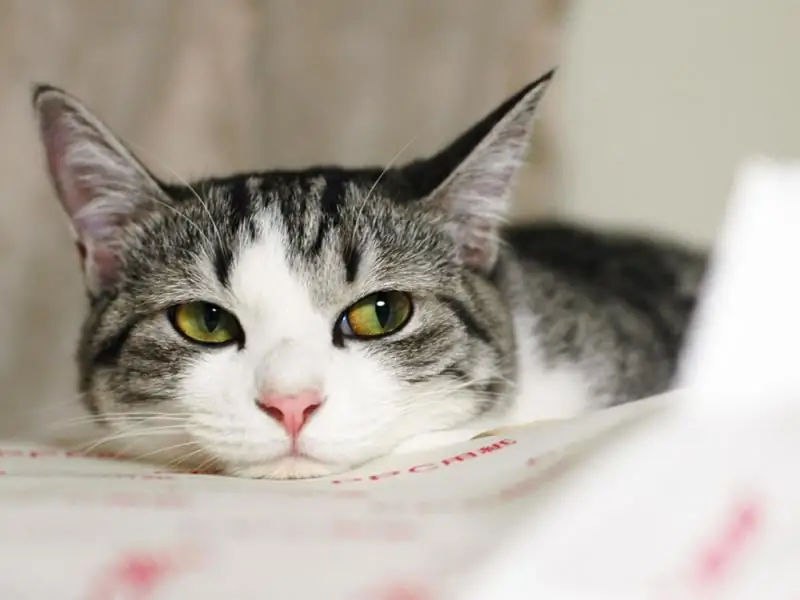
Table of contents:
- Smells that repel cats - a way to raise pets
- The meaning of odor for a cat
- Smells that scare away
- Folk recipes for mixed (multicomponent) odors for scaring cats
- Smells that help wean a cat from shitting in the wrong place in the house
- Smells that protect plants from pets
- Industrial facilities overview
- Rules for using attractive odors
- Feedback on parenting with smell
- Author Bailey Albertson [email protected].
- Public 2024-01-17 22:26.
- Last modified 2025-06-01 07:32.
Smells that repel cats - a way to raise pets
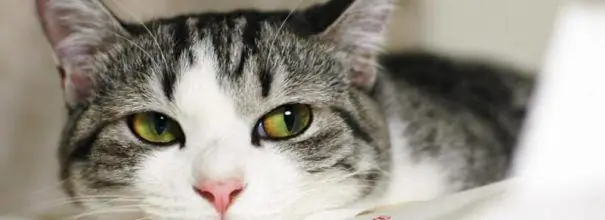
Cats are inherently predators. And they use smells to hunt, navigate the terrain and communicate with other animals. The latter are divided into those that scare away and attract. And this feature of animals can be used for education and behavior correction.
Content
-
1 The meaning of odor for a cat
- 1.1 Individual intolerance to odors in cats
- 1.2 Features of the use of odors to correct the behavior of cats
-
2 Smells that scare away
-
2.1 Essential oils
2.1.1 Photo gallery: essential oils that repel cats
- 2.2 Vinegar
- 2.3 Citrus
- 2.4 Black pepper
- 2.5 Alcohol
- 2.6 Onions, garlic
- 2.7 Perfume and perfumery
- 2.8 Video: how to choose a scent your cat doesn't like
-
- 3 Folk recipes for mixed (multicomponent) odors to scare away cats
- 4 Smells that help wean a cat from shitting in the wrong place in the house
-
5 Smells that protect plants from pets
5.1 Video: how to ward off a cat from the beds
- 6 Overview of industrial facilities
- 7 Rules for the use of attractive odors
- 8 Reviews of parenting with smell
The meaning of odor for a cat
A cat has about 200 million olfactory receptors, so it is the sense of smell that is the main way to study the world around us. The cat is comfortable in the place where all smells are pleasant and familiar to her. Therefore, marking a home with its own odor is a completely natural process (rubbing of a cat with its cheeks on a chair, and not just urine output can be considered marking). It will not work to wean a cat from this by cursing, beating, intimidating.
By smell, felines can learn almost all information about another animal: gender, status, age, sexual availability. At the same time, the reaction may depend on the sex of the pet and on its age, for example, cats react more often to valerian than cats, and small kittens are absolutely indifferent to it.
Individual intolerance to odors in cats
All smells are conventionally divided into those that:
- attract an animal;
- scare him away.
But there is also the concept of individual odor intolerance. Surely every owner noticed an atypical reaction of his pet to certain smells. By observing the cat's behavior, one can easily identify them. This will help in education. But it is worth remembering that the smell used should not harm either the cat or the person.
Features of the use of odors to correct the behavior of cats
Smells do an excellent job of correcting behavior, but only if it is not associated with illness (for example, the cat may not walk in the litter box due to urinary incontinence). Most often, the animal ignores the tray or scratching post for only one reason - he does not like something. Smells that attract will help to "love" this or that object, and those that scare away - push away from those places where the cat is undesirable to appear.
Thanks to this, you can:
- wean the cat from shitting in unwanted places (first you need to use cleaning products to remove the urine smell, and then treat the area with a deterrent smell);
- prevent damage to furniture, wallpaper;
- protect plants from eating.
It is not necessary to repeat the treatment often, because it is only for the human nose that the smells quickly disappear, the cat still feels them for a long time.
Smells that scare away
Frightening odors do not pose a health hazard to the cat, that is, they do not cause allergies or asthma attacks. It is worth remembering that animals react sharply to the sharpness of the smell, and only then to how pleasant it is.
Essential oils
The most unpleasant smells for cats are the smell of lavender, rosemary, rue, canine caleus, mint, cinnamon, citronella. They cause the pet to associate with danger, a sense of anxiety. Therefore, most often it is the essential oils of these plants that help to protect the entrance from yard cats. For this you need:
- spread sprigs of lavender or rosemary throughout the entrance (a dried plant exudes a more intense aroma than a fresh one, and it is more persistent);
- mix essential oil with water, adding a little alcohol to improve mixing, and then spray the liquid on the walls, staircase steps.
The latter method is also effective if the pet spoils the furniture.
Photo gallery: essential oils that repel cats
-

Rosemary - Rosemary can be planted near those plants that need protection
-

Citranella - To enhance the effect, essential oils can be mixed
-

Lavender -
Lavender is actively used to protect the entrance from courtyard cats
-

Canine caleus - The smell of canine caleus makes cats feel anxious and dangerous
Vinegar
Using vinegar to ward off a cat from a corner has several benefits:
- high efficiency, because this smell has an irritating effect on the nasal mucosa of the animal;
- eliminates the smell of urine, so the cat will not smell its own smell, so it will not go there again.
Citrus
Most of all, cats do not like the smell of lemon because of its harshness. Citrus peels can be used to disaccustom your cat to toilet in the wrong place. You can simply spread the peel in these places. You can enhance the effect by rubbing the zest or chopping it into small pieces.
Lemon juice is also effective, but the concentrate cannot be used, since the smell will be too strong. The juice must be diluted with water and sprayed over the furniture from a spray bottle. Additionally, essential oils, such as lavender, can be added to the liquid.
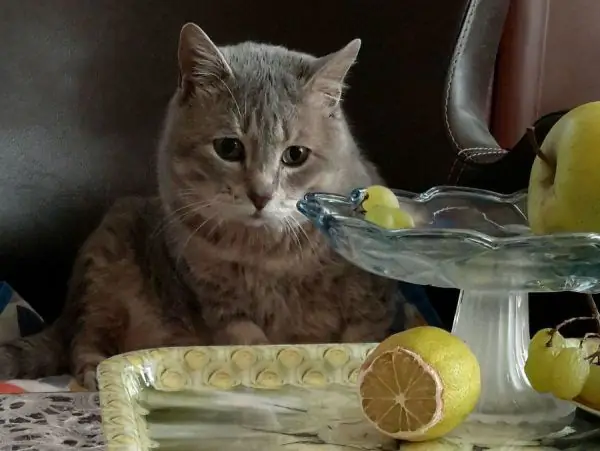
The smell of lemon is pleasant to a person, but it repels a cat
Black pepper
The smell of black pepper is disgusting to cats. For processing furniture or carpet 2 tbsp. l. spices need to be chopped and then mixed with 1 tbsp. hot water. The resulting liquid must be poured into a spray bottle, with which you apply the product to objects.
Alcohol
The smell of alcohol, exactly the same as that of black pepper, disgusts furry pets. Therefore, it can be used to stop a cat from climbing tables. It is enough to leave a bowl on the surface with a small amount of any alcohol or medical alcohol. And if you spray the place where the cat made a "toilet" with such a liquid, then he will stop walking past the tray.
Onion garlic
It is not only the smell of onions and garlic that irritates the cat, but also the phytoncides that release these two products. To get the effect, you need to either chop the onion or garlic, or grate, or beat with a blender. This remedy is much more effective than the peel of citrus fruits, but not everyone is able to endure the smell of onions in their apartment.

The smell of onions can be unpleasant not only for cats, but also for their owners.
Perfume and perfumery
You can't talk about 100% deterrent effect. In this case, the emphasis is not on the scent itself, but on its sharpness. To correct the behavior of a pet, you need to select exactly those spirits that a particular animal does not like, taking into account individual intolerance.
These products should be used with utmost care, especially if bed linen is being processed. An excessive amount of perfume or toilet water can harm not only the pet, but also its owner.
Video: how to choose a scent your cat doesn't like
Folk recipes for mixed (multicomponent) odors for scaring cats
In stock it is better to have already prepared mixed smells, which will quickly solve the problem of furniture damage. The most effective are the following:
- A blend of essential oils of citronella, lavender, mint, orange, lemongrass. Other ingredients are possible, such as cinnamon, citronella, lemongrass and rosemary oil. To prepare a homemade repellent, you need to take 1 part of a mixture of essential oils and 3 parts of water. After that, the mixture can be sprayed on furniture or carpet, or cotton swabs soaked in this liquid can be spread out in places where the cat cannot appear.
- Herbal tincture. A mixture of lavender, cayenne pepper, rosemary is effective. These herbs must be added to boiling water, and after 5 minutes, drain the liquid. You can use the liquid after it has cooled down. It should be sprayed onto furniture, clothing, or flowers.
Smells that help wean a cat from shitting in the wrong place in the house
In addition to the use of deterrent odors, you need to follow the principle "here you can not - here you can." If you do not provide your pet with an alternative, such as a litter box, this method of parenting can be completely ineffective.
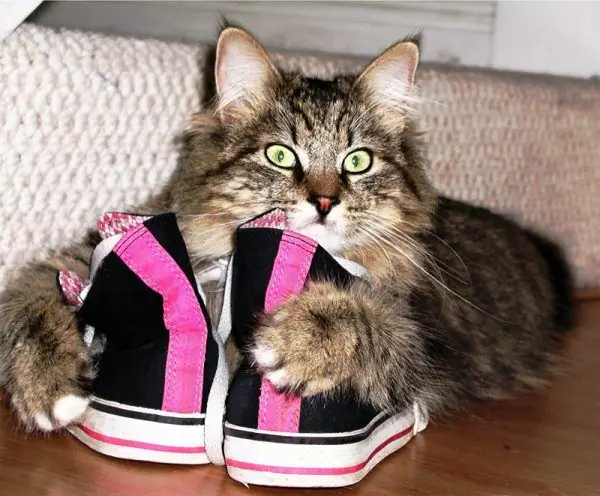
If you do not regularly clean the cat's tray, then not a single smell will wean her to shit in the wrong place
There will be no effect even if the corrosive smell of urine is not eliminated. It is not worth using bleach for this, it will cope with this function perfectly, but this one will lure an animal permanently living in this apartment. Therefore, it is better to give preference to vinegar, because it will not only remove the unpleasant odor of urine, but will also scare the cat away from re-handling the need in an unsuitable place.
The smell will help to re-educate the pet:
- citrus fruits (zest can be scattered in places where the cat should not appear);
- garlic;
- essential oils (they must first be mixed with water).
Smells that protect plants from pets
Despite the fact that cats are carnivores, a certain percentage of plant foods must be present in their diet. Therefore, if the pet began to eat plants on the windowsill, then it does not have enough of them. In such cases, you should think about growing special cat grass so that other plants are not "attacked". Additionally, you can secure them with the help of a self-made deterrent. It includes:
- 10 drops of lemon juice;
- 1 liter of water;
- 20 drops of rosemary essential oil.
The plant processing process is as follows:
- Mix all the ingredients and then pour the liquid into a container with a spray bottle.
- Apply the product to the leaves of the plant and to the pot.
- Carry out the treatment daily until the cat stops visiting the windowsill. But it is worth remembering that this animal is highly organized, therefore, sometimes it can conduct a kind of reconnaissance in order to find out if the situation has changed.
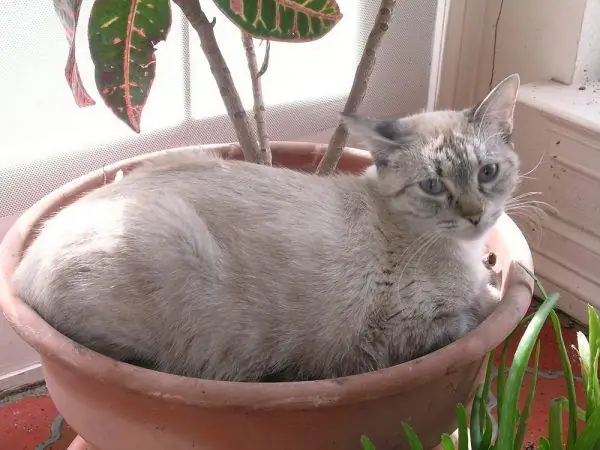
If a cat begins to gnaw on plants, then its body does not have enough plant components.
If the cat eats plants not at home, but in an open area nearby, then you can use:
- pine cones, which can be spread near the plant that needs protection;
- citrus skins arranged in the same way;
- sachets with filler soaked in essential oil;
- deterrent plants such as mint can be planted nearby.
Video: how to ward off a cat from the beds
Industrial facilities overview
Specialized stores offer a wide range of ready-made products that make it easier to train cats to toilet and prevent damage to furniture. The most popular are:
-
Spray Gimpet Katzen Fernhalte. It is used to protect closed and open spaces from destruction that can be provoked by a cat. One of the advantages of the spray is the absence of liquefied gas, and therefore its use is absolutely silent. It has an intense effect, so 2-3 treatments are enough for a full effect. It is necessary to spray surfaces from a distance of 30 cm. It is not recommended to process plants and light surfaces. In such cases, it is better to place rags soaked in the product nearby.

Spray Gimpet Katzen Fernhalte Spray Gimpet Katzen Fernhalte is suitable for repelling cats both outdoors and indoors
-
Spray Biovax. The method of using the tool is as follows. First, you need to thoroughly clean the place that will be processed later. After that, spray with a spray from a distance of at least 20 cm. Repeat the treatment several times a day until the animal develops a stable reflex.

Spray Biovax In the line of sprays Biovax there are agents that repel cats and mask the smell
-
Spray Himola Antigadin. It is a biological product containing enzymes that are safe for both cats and humans. The advantages of the product are the absence of its own smell, traces and damage on the treated surface. It must first be removed and washed with water. It is not necessary to use additional disinfectants. After that, sprinkle furniture or carpet with the indicated product from a distance of about 25 cm. The effect occurs within 1-2 hours. Repeat the treatment until the animal has developed a persistent reflex, do not visit this area of the apartment.

Spray Himola Antigadin for cats Antigadin contains natural ingredients
-
Spray Ms. Kiss No Problems. The company has created a whole line of products for raising domestic cats. There is a tool for teaching kittens and adult cats to the litter box or to a new scratching post, eliminating the smell of urine. The first contains urea and citric acid, while the second contains catnip oil and valerian extract. Surface treatment is performed as needed (1-2 times a day to repel to go to the toilet in an unsuitable place and once every 3 days to train you to a scratching post).

Spray Ms. Kiss No Problems Spray Ms. Kiss No Problems to wean shit in the wrong place and kittens and adult cats
Rules for using attractive odors
You can speed up the process of accustoming a cat to a scratching post by using smells that attract them. It:
- valerian (do not abuse this remedy, the grass itself and intoxication are safe for the cat, but the tincture is made on alcohol, which can have a negative effect);
- catnip (the smell has an intoxicating effect, but you cannot allow chewing on the herb, which is sold in dried form);
- own smell (you can use a trick - first, wipe the cat's neck with a cloth, then wipe the carpet with it, in such a place the cat will definitely not shit, because this is an animal with high self-esteem).
Feedback on parenting with smell
Smells are a way of learning about the world around you, so they can be used for educational purposes. They help to wean the animal from shitting in the wrong place or to love a new scratching post.
Recommended:
How To Get Rid Of Mice In The Country, How To Scare Them Away, Folk Remedies To Combat Them
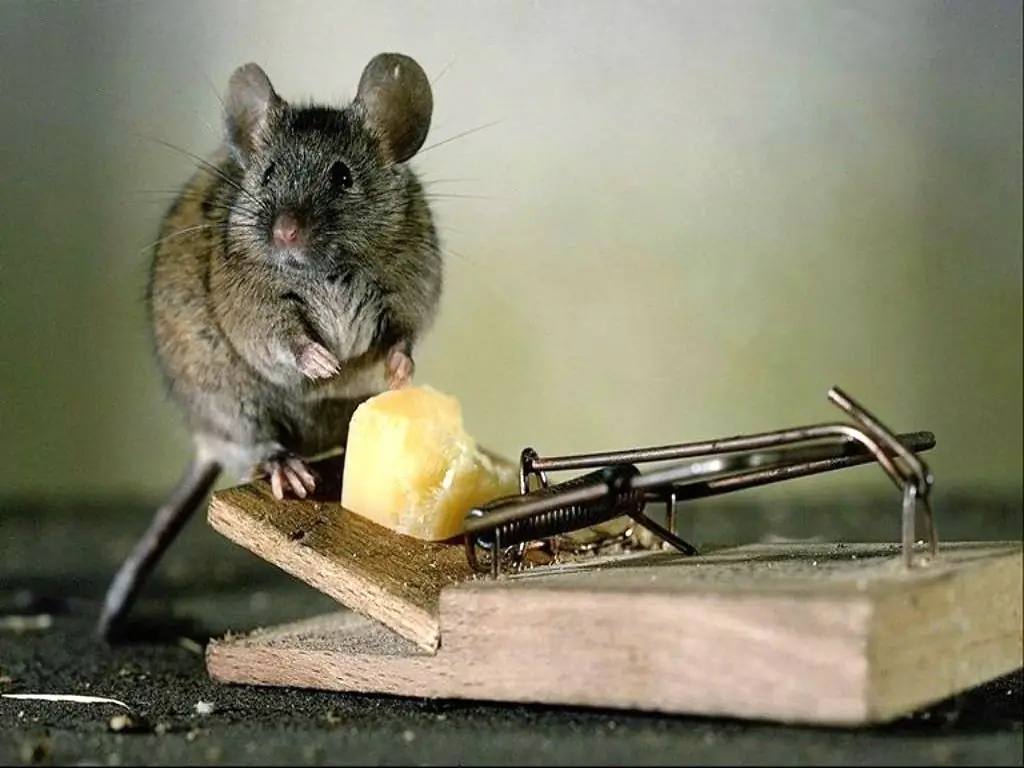
What are the best ways to deal with mice in the country. Description of the manufacture of traps, the use of poisons and ultrasonic repellents. Video
To What Age Do Cats And Cats Grow, Which Affects The Growth Rate Of Animals, Reviews Of Veterinarians And Pet Owners
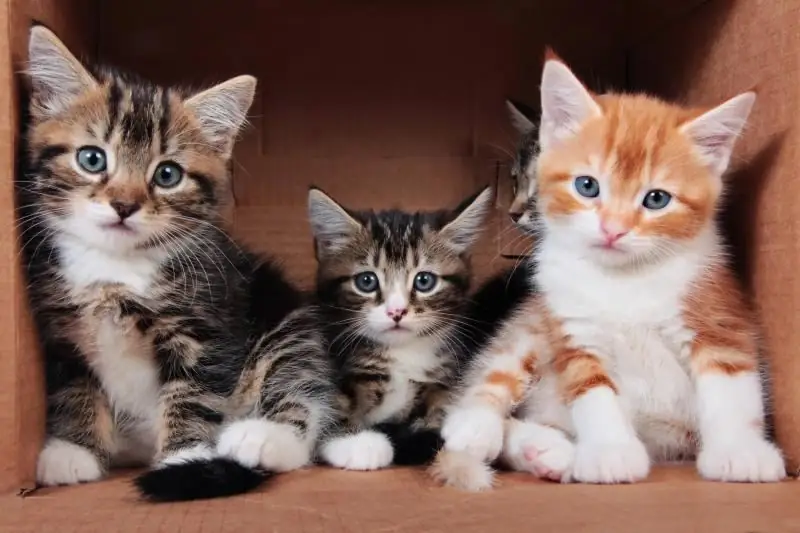
Growth stages of cats. What influences this process, what prevents it. How cats of different breeds grow. How to create conditions for the growth of a kitten. Owner reviews
Fosprenil For Cats And Cats: Instructions For Use In Kittens And Adult Animals, Contraindications And Side Effects, Price, Reviews
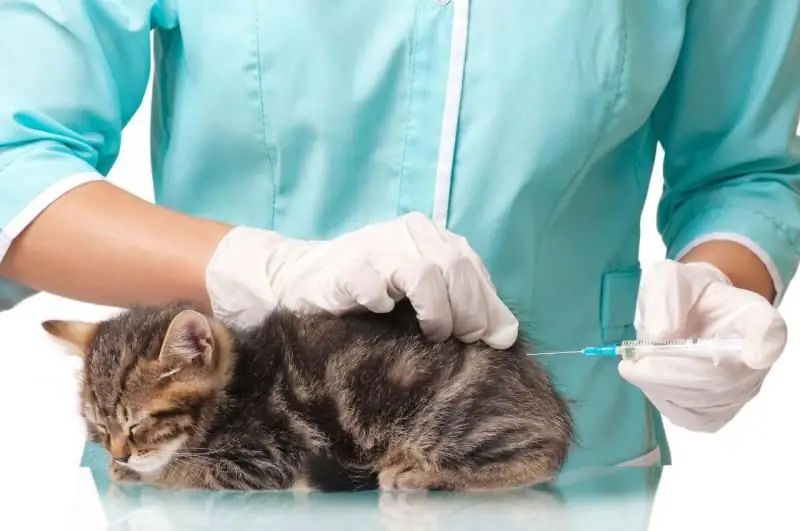
What is Fosprenil used for in cats: composition and release form of Fosprenil; indications for use; contraindications and side effects
How To Remove Fleas From Cats And Cats At Home: How To Get Rid Of Them From Kittens And Adult Animals By Folk And Other Means, Photo
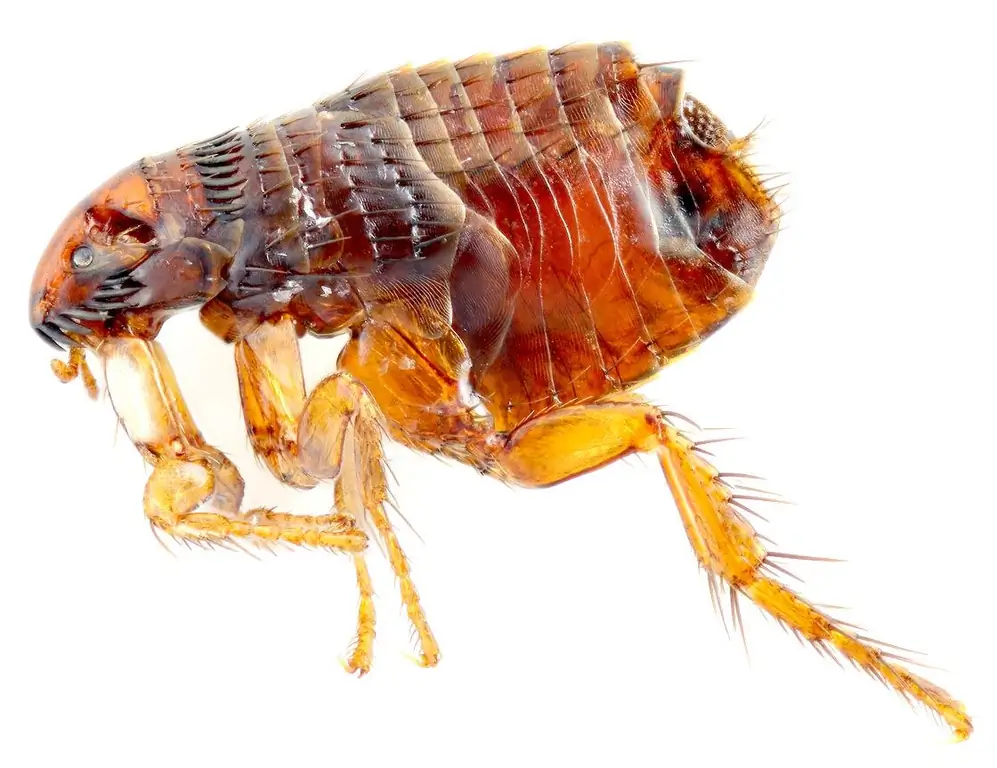
Flea life cycle. What is their danger to a cat? How to destroy fleas: drugs, folk remedies. How to prevent your pet from getting infected
Deprive Cats And Cats (shearing And Other Species): What It Looks Like, Signs, Treatment Of Kittens And Adult Animals At Home, Photo
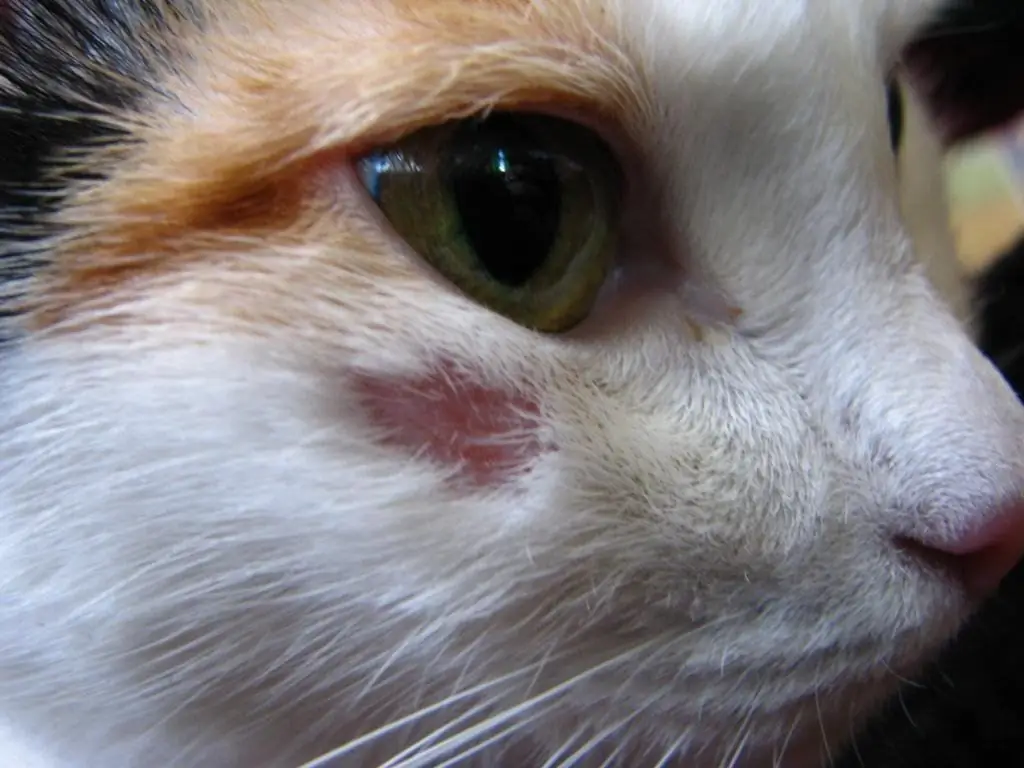
How does shingle manifest in cats? The causative agent and types of the disease. Features of the course of the disease. Treatment methods and prognosis. Deprivation prevention. Reviews
